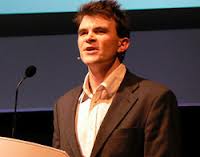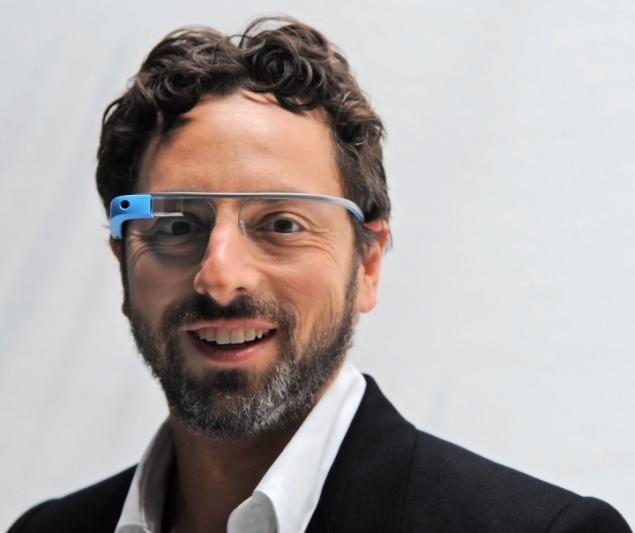 Robin Christopherson is AbilityNet's Head of Digital Inclusion
Robin Christopherson is AbilityNet's Head of Digital Inclusion
What?? Google’s glasses with heads-up display are a winner for users who can’t even see? Absolutely. Moreover they promise huge potential benefits for users with a range of other impairments too.
I’ll explain – but first it’s worth giving a bit of background to what Project Glass is all about (if you already know all about these uber-geeky glasses then skip down to the next paragraph).
As you’ll have gathered from the picture these are indeed glasses, but they’re glasses with a difference. They have a computer built-in and that computer is intelligent and able to do a lot of what a smartphone does including running apps, making voice or video calls, taking photos or videos and playing you your favourite music. The best introduction is probably Google’s own Project Glass promo video they put out a year or so ago.
For a recent update on progress check out a video of The Verge’s Joshua Topolsky spending a day with the project team at Google.
Yes but how will a pair of glasses help blind people?
So what has Glass got to offer disabled users – and blind users in particular? Well it’s a no-brainer to say that disabled people often find certain things more difficult than people who don’t have an impairment of any kind. Technology can really help overcome those difficulties – and the more mobile, aware and intelligent that tech is the better.
I myself as a blind person, for example, could really do with a pair of eyes that are always looking where I’m looking and, at the same time, applying some significant smarts to what’s in front of me. OK, so Google Glass only has one eye – but one eye’s better than none believe me!
 You’ll have seen from the videos that the camera is always on the look-out and analysing your surroundings, serving up useful information that it thinks you need to know. You look at the clock and it assumes you are interested in the time and tells you appointments coming up. Look out of the window and it gives you the weather.
You’ll have seen from the videos that the camera is always on the look-out and analysing your surroundings, serving up useful information that it thinks you need to know. You look at the clock and it assumes you are interested in the time and tells you appointments coming up. Look out of the window and it gives you the weather.
On my phone I already have an app that tells me what product I have in my hand at the supermarket (and even gives me nutrition information and where I can buy it cheaper round the corner). I have an app that tells me whether I’m holding a £5 or £50 note before I hand it to the cabby – and all without taking a photo. I just wave it under the camera and it speaks the result. So this sort of real-time object recognition is a reality.
For blind people to have that eye looking wherever they’re looking and telling them lots of useful information (such as notification of an obstacle across your path or the location of your wallet) and combine that with speech output which is already standard on smartphones and you have a potentially life-changing proposition. So, as you can imagine, I’m interested.
But it's not just about visual impairment
Glass has potential for many other users too. Here’s a video showing another example of real time image recognition – this time it’s emotion recognition.
This software extends facial recognition to identify the emotions of the person you’re looking at. Crazily enough this software is actually better at recognising human emotions than humans are – tests showing that it gets it right 65% of the time as opposed to 56% for us mere mortals.
Imagine how empowering that would be for someone with Asperger’s or autism who finds it extremely difficult to interpret people’s emotions. Combine that with a heads up display that tells you to “Tell another one, they liked it!” or “I think they could do with some sympathy.” And you begin to see the potential benefits.
Live transaltion, with sub-titles...
As a final example let’s think about people with a hearing impairment. There are dozens, probably hundreds, of apps that offer real-time voice recognition (and often simultaneous language translation too) which is extremely useful if you are in a foreign country (or Glasgow) and need to understand the local lingo. Now combine that with a heads-up display and you have live subtitles overlaid over life. Great for all of us that aren’t polyglots. But if you’re deaf then we’re now talking about a truly life-changing gadget.
So now you see why I’m excited for myself and for millions of others too. As soon as I can wangle a pre-order on company expenses I’ll join the orderly queue to look like extras from an abandoned series of Star Trek. I’m hoping that Google’s Project Glass will be opening doors for disabled users with all sorts of needs - and I’m also hoping they may even stop me walking into a few that are still closed…
